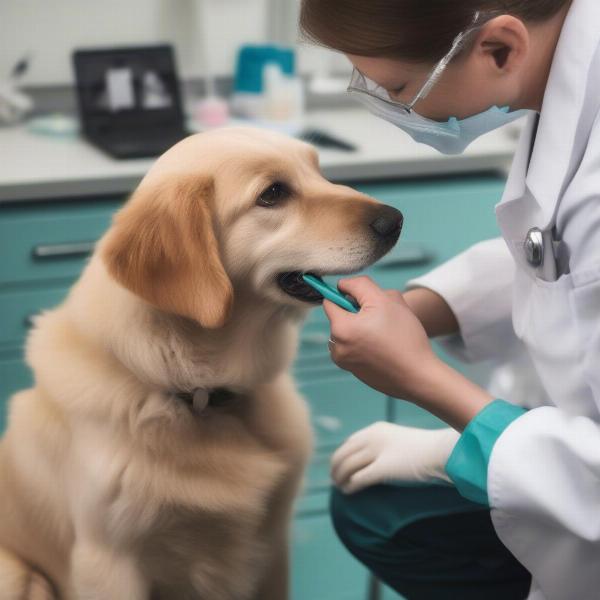Watch dog dads are a special breed. They understand the unique bond between a man and his dog, a connection built on loyalty, companionship, and unconditional love. Whether seasoned dog owners or embarking on this journey for the first time, watch dog dads prioritize their furry friend’s well-being. This guide explores everything a watch dog dad needs to know, from choosing the right breed to providing expert care and training.
Choosing the Right Breed for a Watch Dog Dad
The first step in any watch dog dad’s journey is selecting the perfect canine companion. Different breeds have different temperaments, activity levels, and grooming needs. Some breeds naturally excel as watch dogs, alert and protective of their families. Consider breeds like German Shepherds, Rottweilers, or Doberman Pinschers. However, even smaller breeds like Chihuahuas can be surprisingly effective watchdogs due to their alertness and tendency to bark. Researching different breeds and considering your lifestyle is essential. Do you live in an apartment or a house with a large yard? How much time can you dedicate to exercise and training? Answering these questions will help you narrow down the choices and find the ideal breed.
Essential Health and Medical Care for Your Watch Dog
Just like humans, dogs require regular medical care to stay healthy. Vaccinations, parasite prevention, and regular checkups are crucial for a long and happy life. Watch dog dads must stay vigilant about their dog’s health and be aware of any changes in behavior or appetite. Dental care is often overlooked, but it’s just as important for dogs as it is for humans. Brushing your dog’s teeth regularly can prevent dental disease and other health problems.
 Essential Health and Medical Care for Your Watch Dog
Essential Health and Medical Care for Your Watch Dog
Training and Behaviour: Building a Strong Bond
Training is not just about teaching your dog tricks; it’s about building a strong bond based on trust and understanding. Positive reinforcement methods, using rewards and praise, are generally the most effective. Consistency is key, and watch dog dads need to be patient and persistent. Socialization is also essential, exposing your dog to different people, places, and situations from a young age. This will help them develop into well-adjusted and confident companions. dog and dad gifts can also be used as rewards during training.
Nutrition and Feeding: Fueling Your Watch Dog’s Adventures
Providing a balanced and nutritious diet is essential for your dog’s health and energy levels. Choose high-quality dog food appropriate for your dog’s age, breed, and activity level. Avoid feeding table scraps, as many human foods can be toxic to dogs. Always ensure fresh water is available.
Grooming Your Canine Companion: Tips for Watch Dog Dads
Regular grooming is important for maintaining your dog’s coat and skin health. The frequency and type of grooming will depend on the breed. Some breeds require daily brushing, while others need less frequent attention. Bathing, nail trimming, and ear cleaning are also essential aspects of grooming. dog dad responsibilities include ensuring their dog is well-groomed and healthy.
Conclusion
Being a watch dog dad is a rewarding experience. By understanding your dog’s needs and providing them with proper care, training, and love, you’ll build a lifelong bond with your furry friend. Remember to stay informed and seek advice from professionals when needed. This journey is full of adventures, and with the right knowledge and dedication, you and your watch dog can navigate it together.
FAQ
- What are the best breeds for first-time watch dog dads? Breeds like Golden Retrievers, Labradors, and Poodles are often recommended for first-time owners due to their friendly and trainable nature.
- How often should I take my dog to the vet? Annual checkups are recommended, but more frequent visits may be necessary depending on your dog’s age and health condition.
- What is the best way to train my dog? Positive reinforcement methods, using rewards and praise, are generally the most effective.
- What should I feed my watch dog? Choose high-quality dog food appropriate for your dog’s age, breed, and activity level.
- How often should I groom my dog? The frequency of grooming will depend on the breed and their coat type.
- How can I find a reputable dog trainer? Ask your veterinarian for recommendations or check with local dog training clubs.
- What are some signs of illness in dogs? Changes in appetite, behavior, energy levels, or bowel movements can all be signs of illness.
Related Articles
About ILM Dog
ILM Dog is your comprehensive resource for all things dog-related. We offer expert advice on dog breeds, health, training, nutrition, grooming, and much more. Our mission is to empower dog owners with the knowledge and resources they need to provide the best possible care for their canine companions. Whether you’re looking for guidance on choosing the right breed or seeking tips on training and nutrition, ILM Dog has you covered. Contact us at [email protected] or call us at +44 20-3965-8624 for personalized advice.